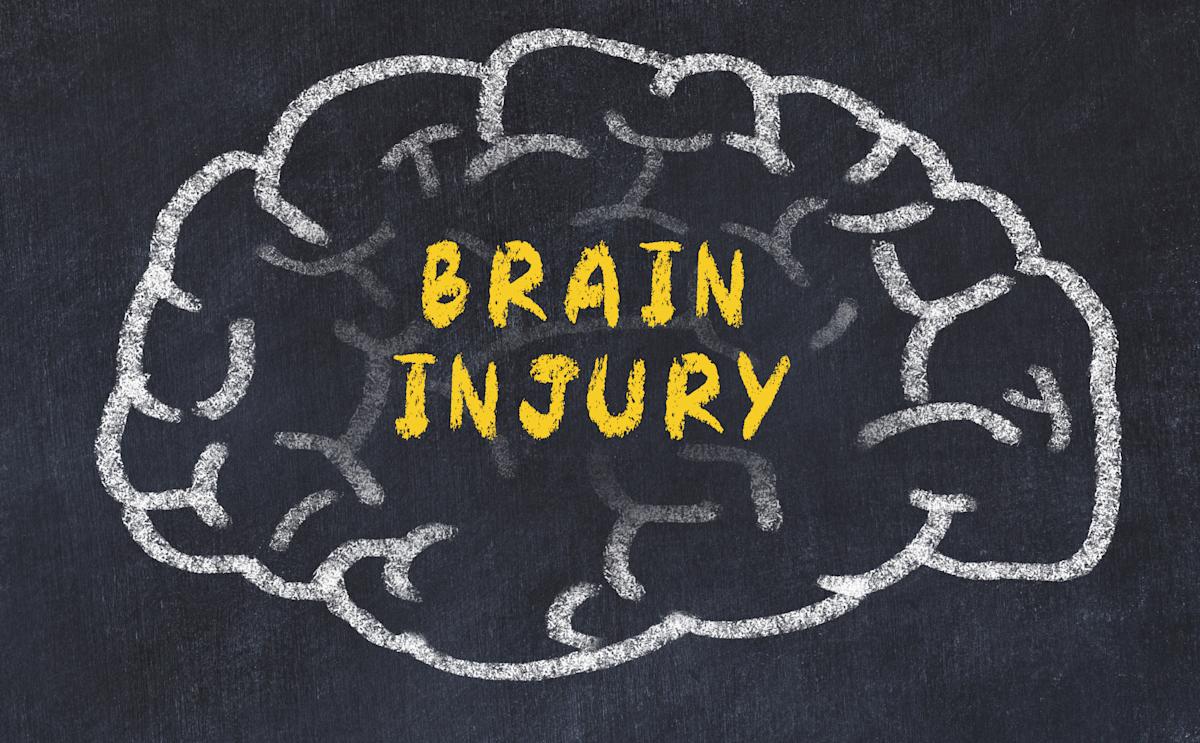Traumatic Brain Injury Classifications | How They Affect Settlement Amounts

Traumatic Brain Injuries (TBI) are some of the most common injuries seen in emergency rooms nationwide. The Centers for Disease Control and Prevention report that over 214,000 people were hospitalized for traumatic brain injuries in 2021. These hospitalizations are disproportionately caused by falls and car accidents. Because of the potential severity, any head trauma should receive immediate medical treatment.
One of the reasons it is so crucial that TBI victims receive prompt medical attention is that a medical professional will diagnose and record the extent and classification of a brain injury. There are many classifications of traumatic brain injuries, each of which has its defining characteristics. Learning the classification of your traumatic brain injury will determine the course of medical treatment and the legal options available to you. Additionally, once you know the classification of your TBI, you can learn more about the average financial settlements victims with similar brain injuries have been awarded.
Types of Traumatic Brain Injuries
The following list describes various categories of traumatic brain injury and recent examples of financial settlement amounts for each classification. However, just like settlement amounts vary from category to category, settlements can also vary within each classification of traumatic brain injury. It is important to consult with an experienced personal injury attorney to get a better idea of the potential worth of your brain injury claim.
Open vs. Closed Brain Injuries
One factor that will greatly determine the overall severity of a traumatic brain injury is whether or not the trauma fractures or depresses the skull. Head injuries where the skull is fractured or broken are known as “open” brain injuries, while head traumas that only affect the brain are known as “closed” brain injuries. While both open and closed brain injuries can have severe effects, open brain injuries are statistically the most severe form of head injury.
Concussion
On the other hand, the “least” severe type of traumatic brain injury is a concussion. A mild concussion is typified by a loss of consciousness that lasts for a period of time no longer than thirty minutes. Concussions are the most common form of traumatic brain injury.
Concussion brain injury settlement: After a woman sustained a head trauma after being rear-ended in traffic, she was diagnosed with a concussion and later developed post-concussion disorder (a complication that can arise in concussion cases). The driver at fault for her injuries eventually settled for $50,000.
Diffuse Axonal Injury (DAI)
A diffuse axonal injury (DAI) is an injury caused by brain tissue sliding back and forth, resulting in tears of the axons or connective fibers. Because this type of brain injury may not show up on an MRI, victims may not be aware of the full extent of their injury until symptoms develop. The larger the tears in the axons are, the worse the damage will be.
Diffuse axonal injury settlement: $2,075,000 was awarded to a victim who was hit head-on when another vehicle crossed into oncoming traffic. The victim claimed that the resulting diffuse axonal injury caused permanent cognitive deficits and personality changes.
Intracranial Hematoma and Hemorrhage
When the brain collides with the inner skull due to an abrupt, heavy blow, bruising, and bleeding can occur. A hemorrhage is the release of blood from a broken blood vessel. The rupturing of the blood vessels between the brain and skull is an intracranial hematoma.
Intracranial hematoma settlement: After suffering a seizure disorder and left- side neglect (loss of feeling or use of the left side of the body), $9.9 million was awarded to a victim who sustained an intracranial hematoma after falling from an amusement park ride.
Brain Contusion
A brain contusion is the damage to the brain tissue from an outside force. In some cases, brain contusions can develop into brain herniation. If the herniation becomes too large, part of the brain can extrude from the skull, a potentially fatal condition.
Brain contusion settlement: The passenger in the backseat of a vehicle suffered a minor contusion when a distracted driver veered into another lane. While this contusion was mild, her claim was settled for $85,000 because the victim was a minor.
Coup-Contrecoup Injuries
Coup-contrecoup injuries are caused by the reverberating effect on the brain when the exterior of the skull is struck. The motion from this impact can damage the opposite side of the brain than the area of impact.; This is what is known as a coup-contrecoup injury. While coup-contrecoup injuries are non-penetrative (i.e., closed), the damage on both sides of the brain (both the initial site of impact and the opposite side where the brain collides) often means that victims suffer more side effects than with injuries with a singular impact site.
Coup-contrecoup settlement: When a child fell from a broken swing set, she was diagnosed with a mild TBI. However, the true extent of her injury later became clearer as doctors noticed bleeding on both sides of her brain. Her coup-contrecoup brain injury proved extensive, affecting her quality of life. Her claim was eventually settled for $3.75 million.
Brain Death
The most severe brain injuries will result in brain death. Brain death is a prolonged or permanent loss of consciousness. Victims who suffer brain death may be in a comatose or vegetative state for
Brain death settlement: Typically, it is the family members of a person who has suffered brain death who seek to recover damages. For example, the family of a farmer who suffered permanent brain death after a grain elevator exploded was awarded $9 million in damages.
Factors That Influence TBI Settlement Amounts
As the above examples indicate, the financial settlements for TBI cases tend to be very high due to the extensive damages caused by these injuries. However, TBI settlements also tend to vary widely depending on a variety of extenuating circumstances that change from case to case.
Glasgow Coma Scale (GCS)
The Glasgow Coma Scale (GCS) is a scoring system used by medical professionals to assess the severity of a brain injury. It is a 15-point scale with the highest range (13-15 points) representing the most mild forms of traumatic brain injury. The most severe forms of brain injury (a persistent or permanent vegetative state) are scored three points or fewer. Since establishing the severity of a victim’s injuries is one of the most important aspects of calculating damages, a victim’s GCS score will likely be the most important factor (besides the defendant’s liability) in determining the total worth of their brain injury claim.
Gross Negligence
In cases where a brain injury is caused by gross negligence, victims may be eligible to seek punitive damages in addition to compensation for their economic and non-economic losses. In order to receive punitive damages, it must be proven that the other party acted in reckless disregard for the victim’s safety.
Age
Because the projected damages across a victim’s lifetime are often considered in the settlement award, the age of the victim is a key factor in a brain injury settlement. For example, if a child suffers a severe brain injury that will significantly reduce their cognition or mobility for the extent of their lifetime, they will likely receive a substantially higher financial settlement than a victim who was injured at the age of 85.
Medical Bills
Traumatic brain injuries can be incredibly expensive to treat. Victims often receive emergency medical care in the immediate aftermath of their injury and may require hospitalization for a period of time. While hospitalized, victims may undergo various brain scans and could require surgery and rehabilitation down the line. Brain injury victims often require medical attention for months or even years after the initial injury. All of this medical care can end up costing victims and their families hundreds of thousands or even millions of dollars. Since personal injury victims have the right to seek compensation for the full worth of their economic losses, injuries that result in significant medical debt will likely result in a larger financial settlement.
Lost Wages
While medical bills may be the first cost associated with a TBI, an indirect cost faced by victims and their families is related to loss of employment. The significant impact of a traumatic brain injury often means that victims cannot return to work for weeks, months, or years; in fact, some brain injuries are so severe that victims may never return to work at all. The loss of their wage-earning ability will impact victims for the rest of their lives. The financial settlement should account for this significant economic loss if a brain injury results in a long-term absence from work.
Comparative Negligence vs. Contributory Negligence
Your state’s negligence laws will also affect your settlement (in fact, they may dictate whether you are eligible to seek compensation). State negligence laws are categorized as “comparative negligence” or “contributory negligence.” Each of these terms refers to cases in which the victim had some degree of liability for the cause of their injury. In states with contributory negligence laws, these victims are ineligible to seek any compensation. In states with comparative negligence laws, these victims can seek compensation, but the total amount will be affected based on the degree of their liability.
How an Attorney Can Help Recover Compensation
Did you know that most personal injury cases never go to trial? Instead, the vast majority of injury claims in the United States are settled out of court. When personal injury cases go through negotiations, the legal representatives of both parties negotiate for a fair settlement that will cover the costs of the victim’s economic and non-economic losses. In order to receive the compensation you deserve, it is important that you have an experienced attorney representing your claim. If the defendants and their representatives do not come to a fair settlement, there is the possibility that your brain injury case will go to court. In this situation, it is even more crucial to have a trustworthy legal professional on your side to protect your best interests before, during, and after your trial. If you need a qualified legal representative to review your claim, visit the legal directory at Expertise.com to find an experienced brain injury attorney in your area.
Expertise.com StaffAuthor
Step into the world of Expertise.com, your go-to hub for credible insights. We don't take accuracy lightly around here. Our squad of expert reviewers, each a maestro in their field, has given the green light to every single article you'll find. From rigorous fact-checking to meticulous evaluations of service providers, we've got it all covered. So feel free to dive in and explore. The information you'll uncover has been stamped with the seal of approval by our top-notch experts.


![What Is the Average Traumatic Brain Injury Settlement? [2023] DUP IMAGE](https://images.ctfassets.net/k00sbju4hbzq/1ibF4pOlVnCa6UkVdAesFP/59b902ef4f0c458ffb38da39ba0a7559/Depositphotos_278086034_XL.jpg?fit=fill&w=384&q=75)

